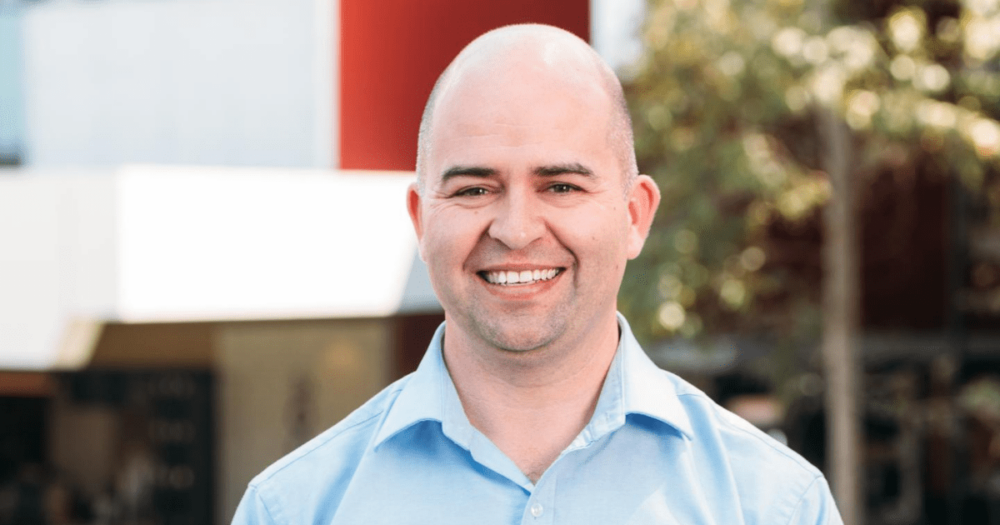Dr Jamie Ranse of Griffith’s School of Nursing and Midwifery is a leading expert on the impact of mass gatherings on emergency services. His latest research project aims to develop formal guidelines for healthcare as part of events, to lessen the impact on other health services in the community.
“When it comes to providing onsite emergency healthcare, there’s not a lot of evidence or guidelines to support event organisers during the planning phase of their events,” says Jamie.
“My current project will look at 700 events held across Queensland in the past five years to determine which type of event has a greater impact on emergency health services, such as emergency departments and ambulance services.
“The goal is to determine which types of events have a high impact on emergency services so that organisers know to incorporate emergency health services into their event planning.”
In 2019, Jamie founded the Mass Gathering Collaboration at Griffith University, which aims to strengthen health security and health system resilience globally for mass gatherings in partnership with community, government, non-government, industry, and academic organisations. This new research will add to that knowledge base and is funded through the Australian Research Council’s Discovery Early Career Researcher Award (DECRA) scheme. Jamie is one of five Fellows at Griffith University to have received funding under the DECRA scheme, which supports early career researchers to advance promising early career researchers and promote enhanced opportunities for diverse career pathways
“I’ll be looking at a wide range of events across arts, music, sport, and community – the aim is not just to cover large festivals, but also cover those events not captured in other studies, such as car boot sales, local fetes, and Christmas carol events,” Jamie explains.
“I’m also going to look at whether the location of the event has an impact (city, rural, and regional), the demographics of event attendees, the duration of the event, and the type of event.
“If we can identify the tipping point in which an event needs an in-built health services response, we can provide guidelines to event organisers so that the local healthcare services aren’t impacted negatively by the event.
“For example, over the last few decades we have recognised that each year on the Gold Coast we get a lot of people from Schoolies presenting at the University Hospital. Now we know that, we have an emergency tent response team at the beach, so the broader community has access to their normal health service.
“If you don’t have that type of resource, it can take away from the local community whereby someone not attending the event then doesn’t have access to an ambulance where they normally would, simply because the event is occurring.”
Jamie’s research is now more important than ever, as event organisers across all industries work to develop safety plans for events in a post-COVID world.
“A lot of the research I’ve done previously around mass gatherings and major events has looked at what type of patients present during and after mass gatherings, both at the event and in the broader health system – this is an extension of that research,” Jamie says.
“COVID-19 has forced health service delivery and events together, to come up with ways in which we can get events happening again that would limit the transmission of COVID-19.
“I’ve recently been working with the Queensland Tourism Industry Council, Tourism and Events Queensland (TEQ), Department of State Development Tourism and Innovation (DSDTI), Queensland Health and other industry stakeholders to formulate the Queensland Industry Framework for Safe Events, to set out the principles event organisers need to consider when starting to plan events in the time of COVID-19.”
Jamie’s work and that of other researchers in the School of Nursing and Midwifery gives opportunities to students to expand their knowledge of healthcare delivery to incorporate what they might expect when working at or near an event.
“We’ve had several research students who have come on board to assist with my work in mass gatherings and disaster response,” he says.
“It’s a great opportunity for the student to experience what a career incorporating research would be like for them, and it also gives them a taste of a completely different aspect to nursing that you wouldn’t normally expect to find in an undergraduate program.
“As an early career researcher, I’m always excited when I see other students who are interested in building a career in research or completing a research component in their studies – there’s a growing field of research in nursing that is so wide in its scope, it’s fascinating to hear about the body of research everyone is building.”
Jamie is recognised internationally for his work focusing on emergency health care, primarily in the areas of high visibility, high consequence events that are either planned (such as mass gatherings/major events), or unplanned (such as disasters/public health emergencies). He has over 60 peer-reviewed publications in the area of disaster and mass gathering health. This work is support with over AUD$1.5M in research funding.
If you would like to start or further a career in nursing, join Griffith University for the Bachelor of Nursing or our wide range of post-graduate study options, such as the Master of Infection Prevention and Control and the Graduate Certificate of Acute Care Nursing. Griffith Health research students work with some of the finest clinical specialists and community health professionals in Australia – find out more about higher degree by research.



